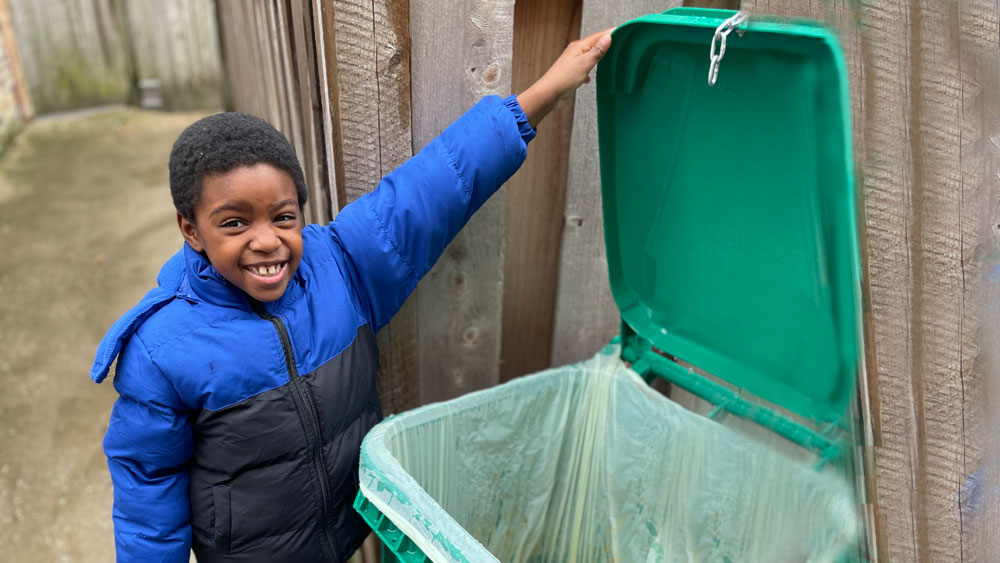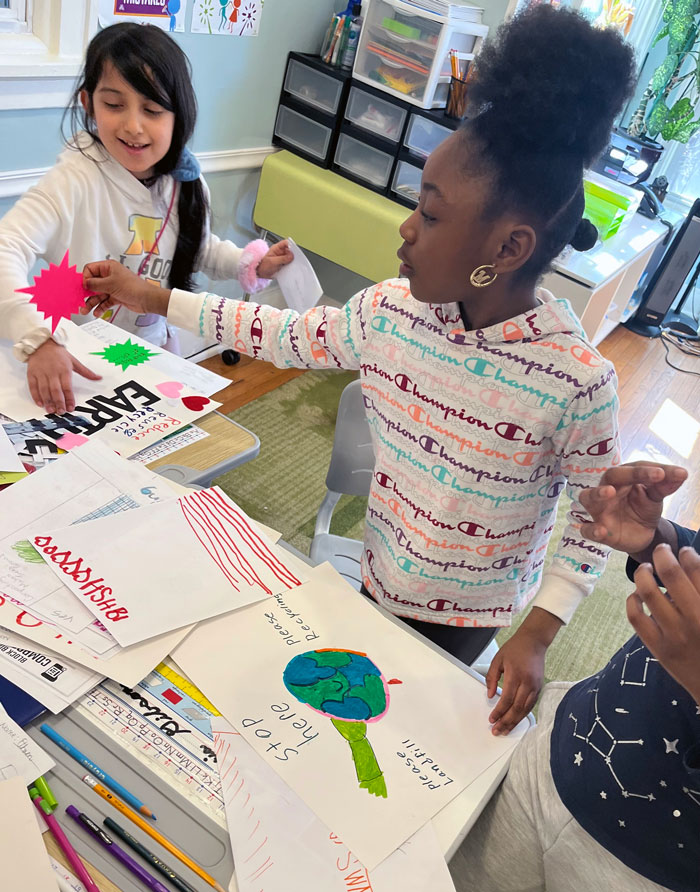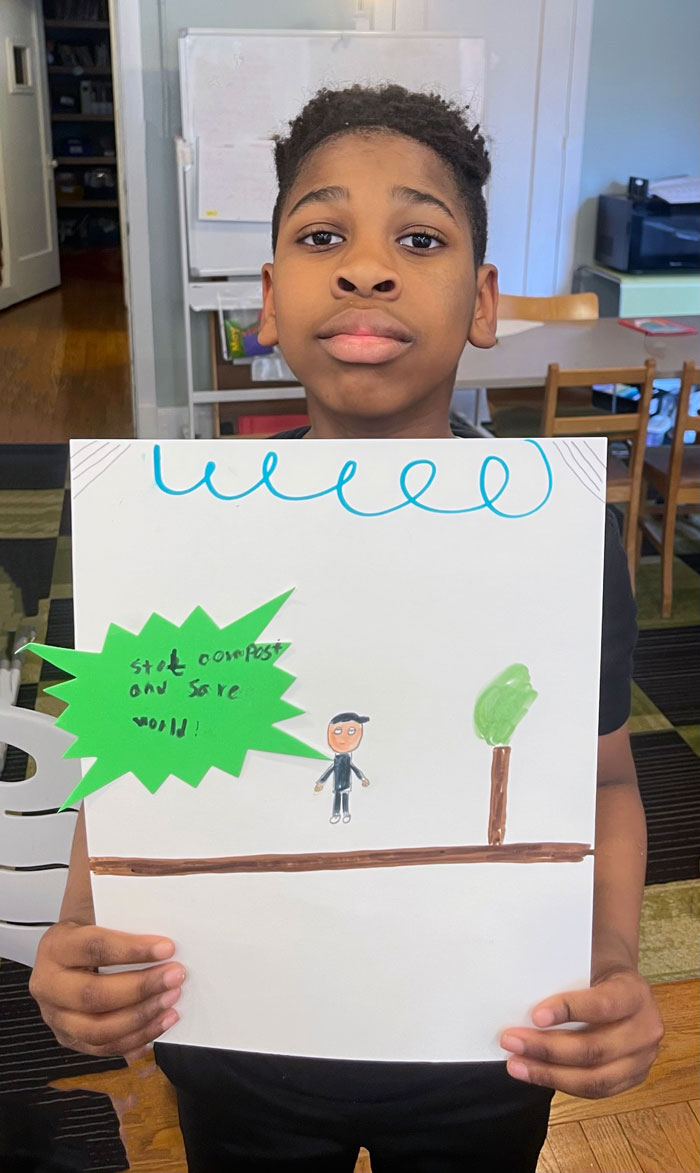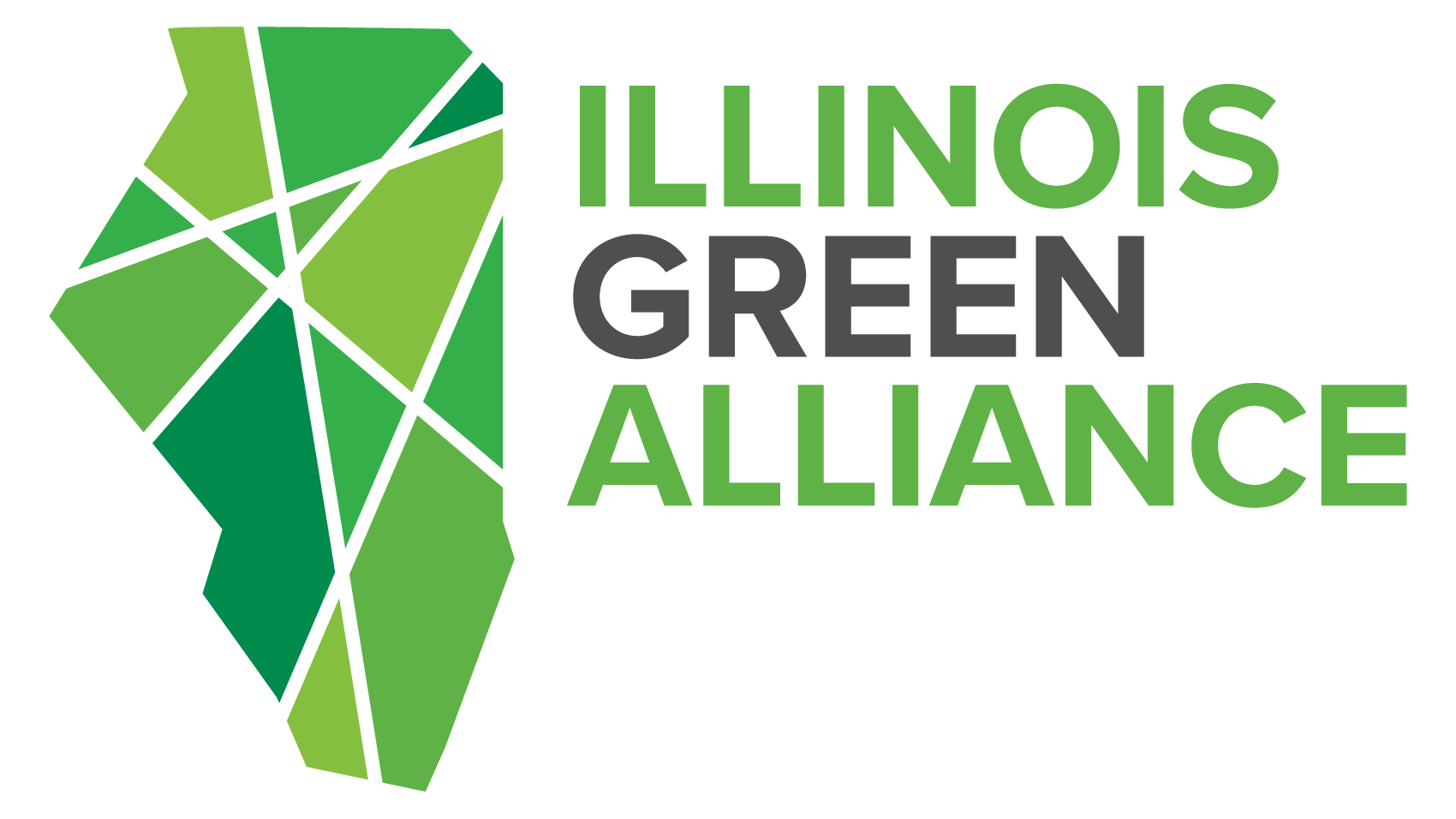
Family Matters School: The Closed Loop Project: Compost to Garden & Back Again
- Project Type: Native Plant & Food Garden, Waste Reduction
- Students: 20
- Staff: 5
- Mentor: Celia Ristow, GBCI
- Location: Chicago, IL
- Grade Levels: K - 4th
The Project
As a participant in the 2022-23 cohort of the Illinois Green Schools Project, The Family Matters School engaged the K - 4th children in learning the mechanics of composting and what a “closed loop” system of composting means for our organization. The project has three main stages: learning, communication, and action.
LEARNING: In the first stage, the children learned about the importance of composting and gained information about the way it works, focusing specifically on how we compost at Family Matters.
COMMUNICATION: During the communication stage, the children created a promotional and educational campaign to advertise Family Matters’ composting program to participants in other Family Matters programs and for all other users of the building.
ACTION: Still in progress, the action stage involves incorporating compost soil amendment into the building of the new Family Matters Youth Garden. The garden, full of native plants and vegetable plants, will be tended all summer by youth in summer programs and will be, in turn, composted by the children of The School when they return in the fall.
Closing the Loop:
Family Matters has been working to expand their composting program and, simultaneously, would like to establish the Family Matters Youth Garden in two 8’ raised beds built by a volunteer in their backyard. The Closed Loop project will deepen youths’ understanding of the reason composting food scraps is important from a zero-waste perspective, expose them to the gifts of growing edible plants in the Youth Garden, and illustrate the cycle of food→compost→soil amendment→fruits and veggie plants→food→compost.
The Process:
All youth involved in Family Matters’ programs had the opportunity to participate in education about what materials are compostable and how organic material behaves in landfills (i.e., does not decompose). They created youth-designed informational signage to post on our compost, recycling, and landfill containers. This spring, Family Matters started seeds, and are researching native Midwestern pollinator plants and early-yield crops that may be harvested while school is still in session.


The garden will be tended over the summer by youth in the Learning Matters and Chicagobility summer programs, and the harvests will be incorporated into lunches. At the end of the season, when school is back in session, the children of The School will put the garden to bed by composting the plants.
The Family Matters School was awarded an Illinois Green Schools Project grant to support the cost of compost service soil, soil amendment, seeds, and plant starts for the Youth Garden.
Outcomes:
The community within Family Matters has created a more eco-friendly environment and reduced the waste that goes to the landfill. Since they began composting with BlockBins in November 2022, Family Matters has diverted more than 265 pounds of food waste from the landfill, equivalent to the CO2 emissions made by burning 12 gallons of gasoline. The youth, staff, and volunteers at Family Matters all possess ownership in the project as they are all participants. The yard is also becoming a natural habitat for local pollinators with native plants. The youth will be able to enjoy the fruits (and vegetables) of their labor in the late summer and early fall. They hope that this first-hand, experiential knowledge will extend beyond the walls of Family Matters and will create different choices for the children at home or in their future homes.
What’s Next:
The Closed Loop Project is a highly sustainable project and will live on beyond this year, becoming part of the routines and norms of being at Family Matters. They plan to include composting practices as part of orientation for new youth and volunteers. Each spring, the youth may also start a new vegetable and herb garden and tend to the perennials planted in the past.
Family Matters will engage future classes to talk about additional ways to reduce waste in the lunchroom and classrooms.
